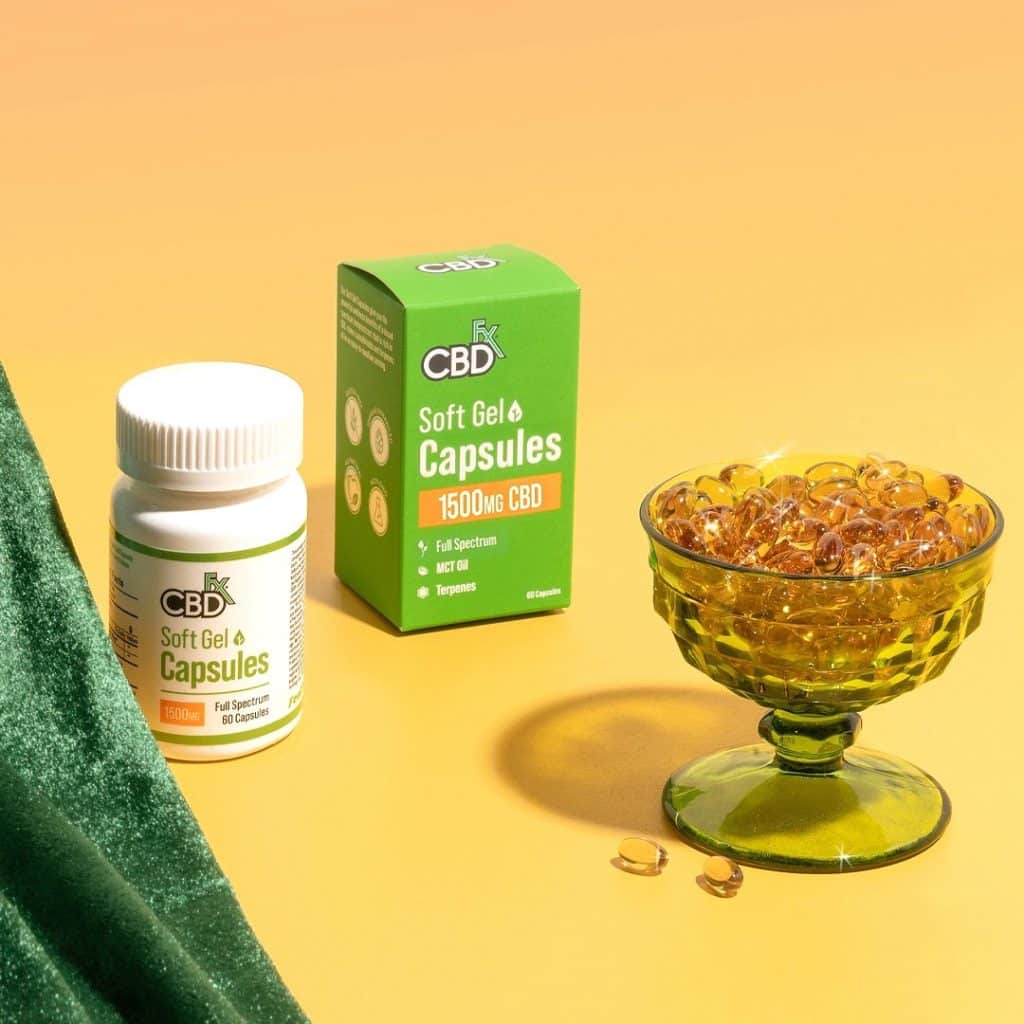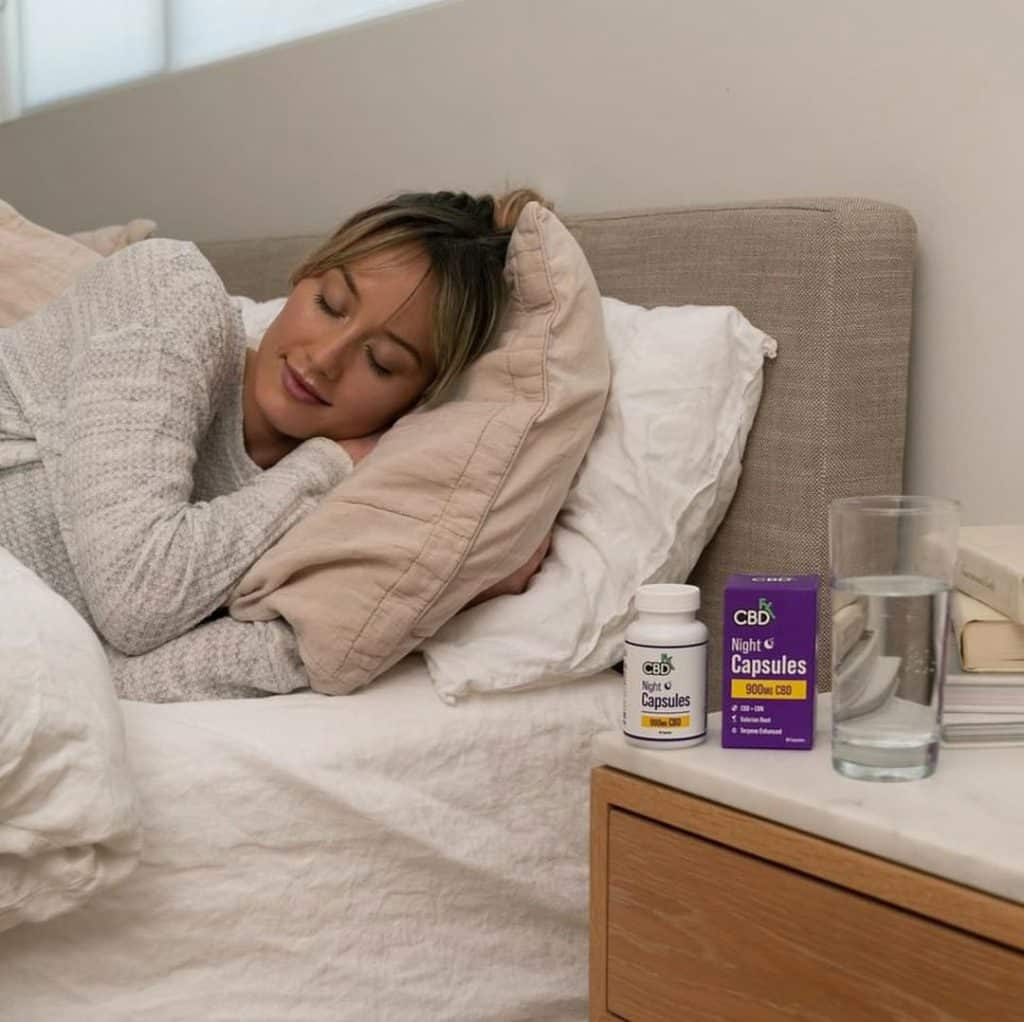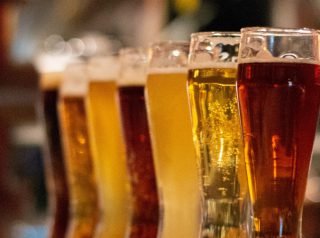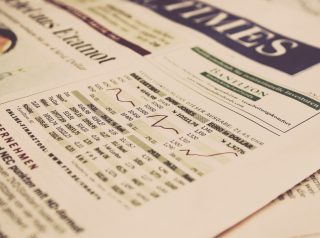Cannabidiol consumption is a piping hot health and wellness trend today. CBD is primarily consumed to relieve stress, anxiety, and pain but also has lauded skincare, neuroprotective, anti-seizure, and antiemetic uses. With its treasure trove of benefits, many fitness enthusiasts depend on CBD products for pain relief, muscle recovery, and better sleep quality. Some athletes also turn to this natural option since the World Anti-Doping Agency (WADA) and the United States Anti-Doping Agency (USDA) permit the use of CBD, but all other cannabinoids remain prohibited.
If you’re wondering how CBD can help you stay on the right track and achieve fitness goals faster, then you’ve come to the right place. We’ll explain what to expect from this ‘miracle’ compound, how it can bring a positive impact to your athletic performance, and the risks to look out for.
Page Content
Fitness Benefits of CBD
CBD is a cannabinoid found in hemp plants, a cousin of marijuana plants that only carry 0.3% THC at the most. Its medicinal uses range from easing pain, anxiety, stress, and nausea to reducing acne redness. Because the chemical compound is non-psychoactive, keep-fit buffs can use CBD products and enjoy their benefits without the risk of getting zonked out.
Sounds impressive, but how does it work?
Unbeknownst to many, humans also produce endogenous cannabinoids that are equivalents to the compounds found in cannabis plants. They engage the network of receptors in our body, conveniently called the endocannabinoid system (ECS), which plays a vital role in modulating primary functions that affect our appetite, mood, memory, fertility and reproduction, and sleep, among others.
When we consume CBD, it interacts with the same receptors. It influences their activity and the various processes the ECS is involved in, resulting in these health benefits that can enhance your daily fitness routine:
Reduces Pain, Inflammation, and Soreness
Athletes, gym buffs, and novice fitness converts are all familiar with the famous expression, “No pain, no gain.”While there is truth to it, there’s nothing wrong with easing the discomfort through CBD, especially when it gets a bit too much. The reduced pain can even boost performance and help in achieving fitness goals. In addition, studies have shown that this natural analgesic can provide the same pain relief as conventional over-the-counter (OTC) pain medications without altering the body’s natural recovery process and the adverse side effects.

Getting or staying fit means subjecting yourself to constant delayed onset muscle soreness (DOMS). Inflammation and nociceptive pain are common concerns for athletes and people who workout a lot too. You might have already gotten used to aches and dull discomfort, but with CBD, you don’t have to anymore. CBD is a natural healing and analgesic agent that can relieve swelling and muscle damage due to exercise. Plus, it is available in various delivery methods, such as ingestion, inhalation, sublingual, and topical. Despite having an onset of action of 20 minutes to two hours, oral consumption via CBD capsules are quite popular as they offer a four- to six-hour-long relief.
With less pain and discomfort, functional mobility and physical activity are unlikely to be negatively affected. No reason to skip the gym when you have CBD around!
Helps With Muscle Healing
CBD isn’t only a band-aid solution to your achy body. It helps in muscle healing by reducing inflammation, which in excess slows down recovery. The compound also improves sleep quality (will be discussed in more detail later), which is extremely beneficial to muscle repair since most tissue healing processes occur during sleep.
Mitigates Stress And Anxiety
A good workout helps manage stress and anxiety, but a crippling mental state can wreck your fitness routine. If you constantly find yourself stuck in the latter, then it may be time to seek some help from CBD.
The cannabinoid is peace of mind in a bottle (or gummy). An endless amount of glowing online testimonials attests to this. Also available are researches that suggest CBD reduces or calms behavioral signs of stress and anxiety. In time, it may also change habitual mind patterns by stimulating brain neuron growth and regeneration.
Though not a magic cure, keeping the symptoms of stress and anxiety allows users to function optimally and stick to their workout routine.
Improves Sleep Quality and Duration
Sleep is an important yet often neglected part of our health and well-being. It allows the body and brain to recover and recharge. If inadequate, concentrating and performing other cognitive functions become difficult, which impacts our overall productivity. The risk of medical conditions such as diabetes, heart disease, high blood pressure, obesity, and stroke also increases.

Moreover, sleep deprivation is bad news when trying to stay fit and maintain a regular fitness routine. You won’t have enough energy to work out. Muscle tissues won’t sufficiently heal or recover between keep fit sessions either. Both may result in reduced muscle strength and an increased likelihood of injuries.
If you can’t seem to get a good slumber, CBD can help you fall and stay asleep in high dosages. Studies suggest that 160 milligrams (mg) of CBD improves sleep duration. On the other hand, 300 to 600 mg of CBD lowers cortisol levels. The stress hormone usually peaks during the day and drops at night. In reverse, it disrupts the sleep cycle, increasing instances of nighttime awakenings.
Provides Neuroprotection
Working out has neuroprotective effects, and so does Cannabidiol. The cannabinoid demonstrated great potential in preclinical studies conducted in animal models of neurodegeneration, including a transgenic model of Alzheimer’s disease and brain iron overload. The data gathered warrant research in the use of CBD in mitigating the harmful long-term effects of repeated concussions, especially on contact sports.
Among the many athletes supporting the use of CBD for neuroprotection and/or encouraging further research are NHL big names like Riley Cote, Connor McDavid, and Matt Duchene. The cannabinoid’s impressive neuroprotective results make it an ideal therapeutic option to treat athletes and others suffering from traumatic brain injuries (TBIs). Additionally, CBD is a safer and non-addictive alternative to opioids or other analgesics, which sportspeople need to deal with the inevitable pain that accompanies their profession.
How Much CBD Do I Need?
Adequate dosage is key to achieving the most out of CBD. However, figuring out just how much is sufficient can be challenging. The U.S. Food and Drug Administration has not released medication guidelines as it does not regulate CBD. In Canada, where it is legal and regulated, no official dosage recommendations were provided either.
The best approach is to start with a low dosage and gradually work your way up until you find the amount that brings the desired effects. Know that dosing is subject to a couple of variables, including individual biochemistry and metabolism, so the amount that works for others may not be suitable for your needs.
With so many factors to consider, it’s wise to seek a qualified healthcare practitioner’s advice before trying CBD products like vape oil, tinctures, and edibles. CBD is safe to use in any quantity and is non-addictive, so you can increase the dosage without developing dependency or facing serious health risks. This extremely high safety profile was demonstrated in one study where the highest dose applied was 1500mgCBD per day, and it was well-tolerated by the human subjects. While some users may experience side effects, these are but minor and non-life-threatening, such as diarrhea, fatigue, and mood or appetite changes.
Before buying cannabidiol-infused products, make sure to do ample research about the brand and check reviews. This is necessary as a 2017 American Medical study revealed that a lot of CBD products are mislabeled. 69% has inaccurate CBD levels stated on the packaging, while 21% carries higher levels of THC.





